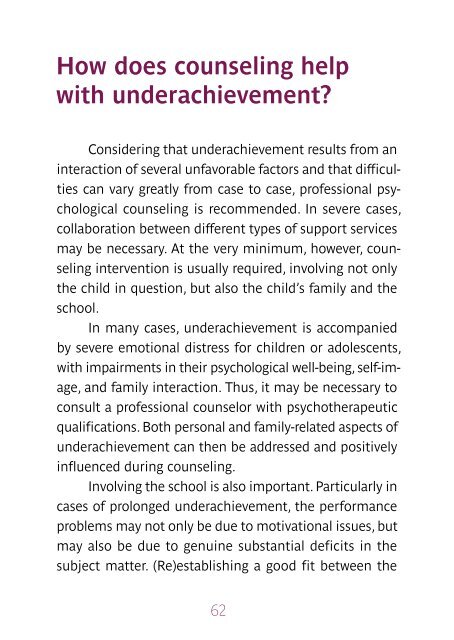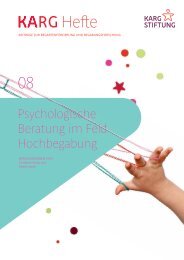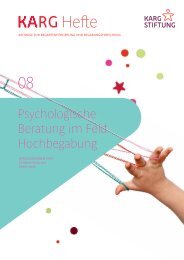FAQS: Frequently asked questions about giftedness
The Karg Foundation receives a lot of questions on the subject of giftedness—FAQs (Frequently Asked Questions)—far more often indeed than it did ten years ago. And this is a good thing! Many people involved in the educational processes of children have come to realize that giftedness can also be a fundamental personality trait of children and adolescents. The Karg Foundation wants to answer the questions you may have not only as educational and psychological professionals in educational institutions or working as educational providers, policy makers, or in training and further education institutes, but as parents and gifted people also: What is giftedness? How can it be identified? Who can provide advise for gifted children and their families? How can they be supported in the best possible way?
The Karg Foundation receives a lot of questions on the subject of giftedness—FAQs (Frequently Asked Questions)—far more often indeed than it did ten years ago. And this is a good thing! Many people involved in the educational processes of children have come to realize that giftedness can also be a fundamental personality trait of children and adolescents.
The Karg Foundation wants to answer the questions you may have not only as educational and psychological professionals in educational institutions or working as educational providers, policy makers, or in training and further education institutes, but as parents and gifted people also: What is giftedness? How can it be identified? Who can provide advise for gifted children and their families? How can they be supported in the best possible way?
You also want an ePaper? Increase the reach of your titles
YUMPU automatically turns print PDFs into web optimized ePapers that Google loves.
How does counseling help<br />
with underachievement?<br />
Considering that underachievement results from an<br />
interaction of several unfavorable factors and that difficulties<br />
can vary greatly from case to case, professional psychological<br />
counseling is recommended. In severe cases,<br />
collaboration between different types of support services<br />
may be necessary. At the very minimum, however, counseling<br />
intervention is usually required, involving not only<br />
the child in question, but also the child’s family and the<br />
school.<br />
In many cases, underachievement is accompanied<br />
by severe emotional distress for children or adolescents,<br />
with impairments in their psychological well-being, self-image,<br />
and family interaction. Thus, it may be necessary to<br />
consult a professional counselor with psychotherapeutic<br />
qualifications. Both personal and family-related aspects of<br />
underachievement can then be addressed and positively<br />
influenced during counseling.<br />
Involving the school is also important. Particularly in<br />
cases of prolonged underachievement, the performance<br />
problems may not only be due to motivational issues, but<br />
may also be due to genuine substantial deficits in the<br />
subject matter. (Re)establishing a good fit between the<br />
individual’s achievement potential and school support is<br />
therefore an important cornerstone and requires the intensive,<br />
long-term coordination of counseling and educational<br />
interventions at school. Support for schools in this<br />
process can be provided by the school psychology counseling<br />
services or specialized professional counseling<br />
centers.<br />
Both personal and family-related aspects of<br />
underachievement can be addressed and<br />
positively influenced during counseling.<br />
62 63
















